Funk music, a vibrant and dynamic genre born from the depths of African American culture, has left an indelible mark on music history. Its origins trace back to the mid-1960s, emerging from the soul and jazz scenes to become a cornerstone of Black empowerment and artistic expression. Over time, funk evolved into a global phenomenon, blending genres and influencing countless artists across different regions and generations. The pioneers who shaped this movement were not just musicians but cultural icons, whose contributions continue to resonate today. From the groundbreaking sounds of James Brown to the innovative styles of George Clinton and Parliament-Funkadelic, these trailblazers redefined music and challenged societal norms. Their impact extends far beyond their immediate audiences, shaping modern music, fashion, and social movements. Understanding the history of funk music and the visionaries behind it offers valuable insights into the power of art to inspire change and unite communities.
Key Takeaways
– James Brown – Pioneered funk as the “Godfather,” with dynamic vocals and iconic tracks like Sex Machine and I Feel Good.
– Sly and the Family Stone – Influenced generations with an innovative soul-rock-funk blend, exemplified by hits like Higher.
– Curtis Mayfield – Contributed early funk elements through his soulful lyrics and tracks with The Impressions.
– George Clinton & Harold McKinney – Co-founded funk’s foundational sounds, with Clinton leading Parliament-Funk Alliance and McKinney fronting The Soul Searchers.
– James Brown – Central figure in funk’s emergence, redefining R&B and setting the stage for the genre’s evolution.
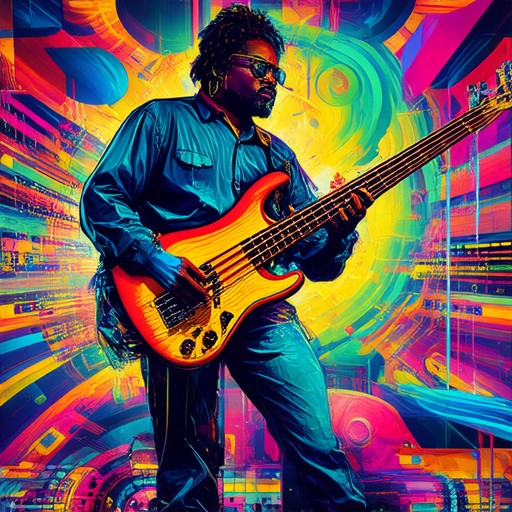
Who is the Pioneer of Funk Music?
The pioneer of funk music is widely regarded as James Brown .
Funk originated in the mid-1960s, with James Brown developing a signature groove that emphasized the downbeat, placing a heavy emphasis on the first beat of every measure, often referred to as “The One.” His innovative use of swung 16th notes and syncopation became a hallmark of his music, influencing basslines, drum patterns, and guitar riffs.
Brown’s contributions to funk laid the foundation for many subsequent genres, including hip-hop, which heavily sampled his tracks due to his groundbreaking rhythmic innovations. His influence remains undeniable, making him a central figure in the evolution of funk music.
Who Influenced Funk Music?
Funk music emerged in the mid-1960s as a blend of rhythm and blues, jazz, gospel, and blues, primarily driven by African American communities. Several key figures and movements shaped the genre, contributing to its unique sound and cultural significance.
Foundational Figures
- James Brown – Often regarded as the “Godfather of Funk,” Brown’s high-energy performances and deep grooves laid the foundation for the genre. His dynamic stage presence and innovative arrangements set the tone for funk music.
- George Clinton – As the leader of Parliament-Funk Alliance, Clinton was instrumental in developing the raw, unrefined style of funk. His socially conscious lyrics and boundary-pushing music pushed the boundaries of the genre.
- Curtis Mayfield – Known for his work with The Impressions, Mayfield’s contributions to both soul and funk music were significant. His ability to weave political messages into his songs gave funk a strong social consciousness.
Soul and Jazz Influences
- Aretha Franklin – The Queen of Soul, Franklin’s powerful vocals and emotive performances influenced funk musicians who sought to replicate her intensity and delivery.
- Nina Simone – A pioneer of soul music, Simone’s bold interpretations of songs brought a level of artistry that resonated with funk artists seeking to push creative boundaries.
- Miles Davis – While primarily associated with jazz, Davis’ experimental work in the late 1960s and early 1970s drew upon funk elements, particularly in his collaborations with Gil Evans.
- John Coltrane – Known for his avant-garde approach to jazz, Coltrane’s emphasis on improvisation and spiritual expression influenced funk musicians who sought to merge jazz with rhythmic groove.
International Impact
- Fela Kuti – The Nigerian musician is often cited as a major influence on funk, particularly through his Afrobeat music, which combined elements of jazz, funk, and Yoruba traditional music.
- The Rolling Stones – Although primarily a rock band, The Rolling Stones incorporated funk elements into their music, notably in tracks like “Brown Sugar” and “Rip the Lid Off.”
- The Clash – One of the leading punk bands, The Clash recognized the importance of funk and incorporated it into their sound, particularly in their early albums.
Modern Era
- Prince – Prince blended funk with pop and rock, creating a unique hybrid that influenced later generations of musicians. His theatrical performances and musical versatility expanded the scope of funk.
- Rick James – Another prominent figure, James’ work with The Temptations and later as a solo artist showcased his ability to integrate funk with soul and pop.
- The Meters – A New Orleans-based band, The Meters are often referred to as the “funk brothers” due to their deep, heavy basslines and relentless rhythms.
Legacy and Influence
Funk music has had a lasting impact on various genres, most notably hip-hop. Artists like Afrika Bambaataa and Public Enemy drew heavily from funk’s raw energy and social consciousness, helping to establish it as a cornerstone of rap and hiphop culture.
Additionally, funk’s emphasis on individuality and self-expression resonated with movements like the Black Power Movement, making it more than just a musical genre but a cultural phenomenon.
By blending elements from soul, jazz, and blues, and adding a unique rhythmic groove, funk became a powerful expression of African American identity and creativity, continuing to inspire musicians and audiences worldwide.
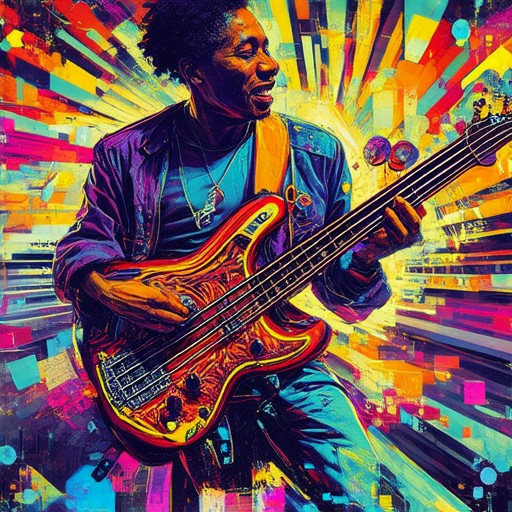
What is the Impact of Funk Music?
Funk music has had a profound and far-reaching impact on music, culture, and society. Emerging in the late 1960s and early 1970s, funk became a cornerstone of African-American music, blending elements of jazz, rhythm and blues, and gospel. Its infectious grooves and driving rhythms quickly captivated audiences worldwide.
Cultural Impact
Funk played a pivotal role in the cultural revolution of the 1970s, serving as a powerful expression of Black identity and pride. Artists like James Brown, George Clinton, and Curtis Mayfield used funk to convey messages of empowerment and social change. The music’s hypnotic beats and syncopated rhythms became synonymous with freedom, individuality, and self-expression.
Outside of music, funk influenced fashion, language, and dance. The iconic moves associated with funk, such as the “robot” and “moonwalk,” became global phenomena. Even today, funk-inspired dances remain a staple of parties and performances worldwide.
Musical Innovation
Funk pushed boundaries in music production, introducing innovative techniques like the use of funk drumming, which emphasized backbeats and hi-hat patterns. Basslines became more prominent, often taking center stage alongside vocals. This shift in instrumentation helped redefine rhythm and blues and set the stage for future genres like hip-hop and electronic music.
Many of funk’s most influential artists were trailblazers in the studio, experimenting with tape manipulation and layered tracks. This approach allowed for greater creativity and complexity in their recordings, influencing producers and musicians across disciplines.
Global Influence
Funk music’s influence extends beyond the United States. In Europe, bands like The Rolling Stones and The Clash drew inspiration from funk, incorporating its raw energy into their own music. In Japan, funk blended with traditional instruments to create a unique hybrid known as “jazz-funk.”
Perhaps most notably, funk laid the foundation for hip-hop. DJ Kool Herc, a pioneer of hip-hop, used funk records to create break beats, which became the backbone of the genre. Artists like Afrika Bambaataa further developed funk’s legacy, fusing it with other styles to create groundbreaking music.
Legacy
Today, funk remains a beloved genre with a dedicated following. Festivals like the New Orleans Jazz & Heritage Festival highlight funk’s enduring appeal. The genre’s influence can be heard in everything from contemporary R&B to electronic music, proving its timeless relevance.
Tiger Funk, an online platform dedicated to funk, soul, and jazz fusion, celebrates this musical legacy through in-depth articles, artist profiles, and historical retrospectives. Explore Tiger Funk to dive deeper into the world of funk and its continued impact on music and culture.
Learn more about Tiger Funk
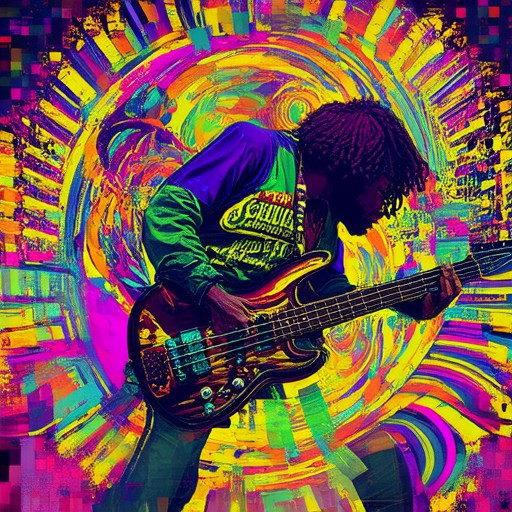
The Forefathers of Funk
The forefathers of funk are often recognized as a group of groundbreaking artists who laid the foundation for this genre during the late 1960s and early 1970s. Among the most influential figures are:
- James Brown
Known as the “Godfather of Funk,” James Brown’s dynamic vocals, fluidic dancing, and hard-hitting beats redefined rhythm and blues, setting the stage for funk. His iconic tracks like “Say It Loud, I Say It Long” and “Get On the Good Foot” remain timeless. - Sly and the Family Stone
Sly Stone’s innovative approach blended soul, rock, and funk, creating a unique sound that influenced generations. Hits like “Higher” and “Dance to the Music” exemplify his ability to merge diverse styles while addressing social issues. - Curtis Mayfield
Though primarily a soul artist, Mayfield’s contributions to The Impressions included tracks that foreshadowed funk’s raw energy. His socially conscious lyrics added depth to the genre’s narrative. - George Clinton
As leader of Parliament-Funk Alliance, Clinton’s raw, gritty sound and politically charged lyrics brought a unique perspective to funk. Albums like “Funkentelechy” highlighted his vision for the genre’s future.
These pioneers not only defined funk’s sound but also its cultural significance, shaping music and society during pivotal times. Their influence continues to resonate today.
The Grandfather of Funk
The term “grandfather of funk” is often associated with several influential figures in the genre’s history. Among the most notable names are George Clinton and Harold McKinney, whose contributions helped shape the development of funk music.
George Clinton, known for his work with The Counts and later as a founding member of Parliament-Funk Alliance, played a pivotal role in popularizing funk in the late 1960s. His track “Double Bubble Toilie” is considered one of the earliest funk hits, blending elements of soul and rhythm & blues.
Harold McKinney, who fronted The Soul Searchers, is also recognized for his early contributions to funk with tracks like “Blow Your Whistle” in 1970. His work predates some of the more well-known artists in the genre, suggesting he may have been an important influence earlier in the movement.
While both Clinton and McKinney are significant, the title of “grandfather of funk” is debated, as funk evolved over time and drew from various musical influences. However, their contributions remain foundational to the genre’s development.

Who is Considered the Godfather of Funk Music?
The term “godfather of funk” is widely attributed to James Brown, a legendary figure in music history whose contributions to funk and soul laid the foundation for the genre. Brown’s dynamic stage presence, distinctive vocals, and groundbreaking recordings redefined rhythm and blues, influencing countless artists and shaping funk music as we know it today.
Funk emerged in the mid-1960s, blending elements of rhythm and blues, gospel, and psychedelic rock. James Brown’s innovations in beat and timing, along with his electrifying live performances, set a new standard for the genre. His iconic tracks like Sex Machine and I Feel Good remain timeless classics of funk.
While James Brown is often hailed as the godfather, other influential figures like Curtis Mayfield, George Clinton, and the Parliament-Funk Alliance also played pivotal roles in shaping funk music. Their contributions further enriched the genre, making it a multifaceted art form with deep roots in African American culture.
Thus, James Brown is undeniably the most recognized pioneer, but the evolution of funk owes much to the collective efforts of many visionary artists.

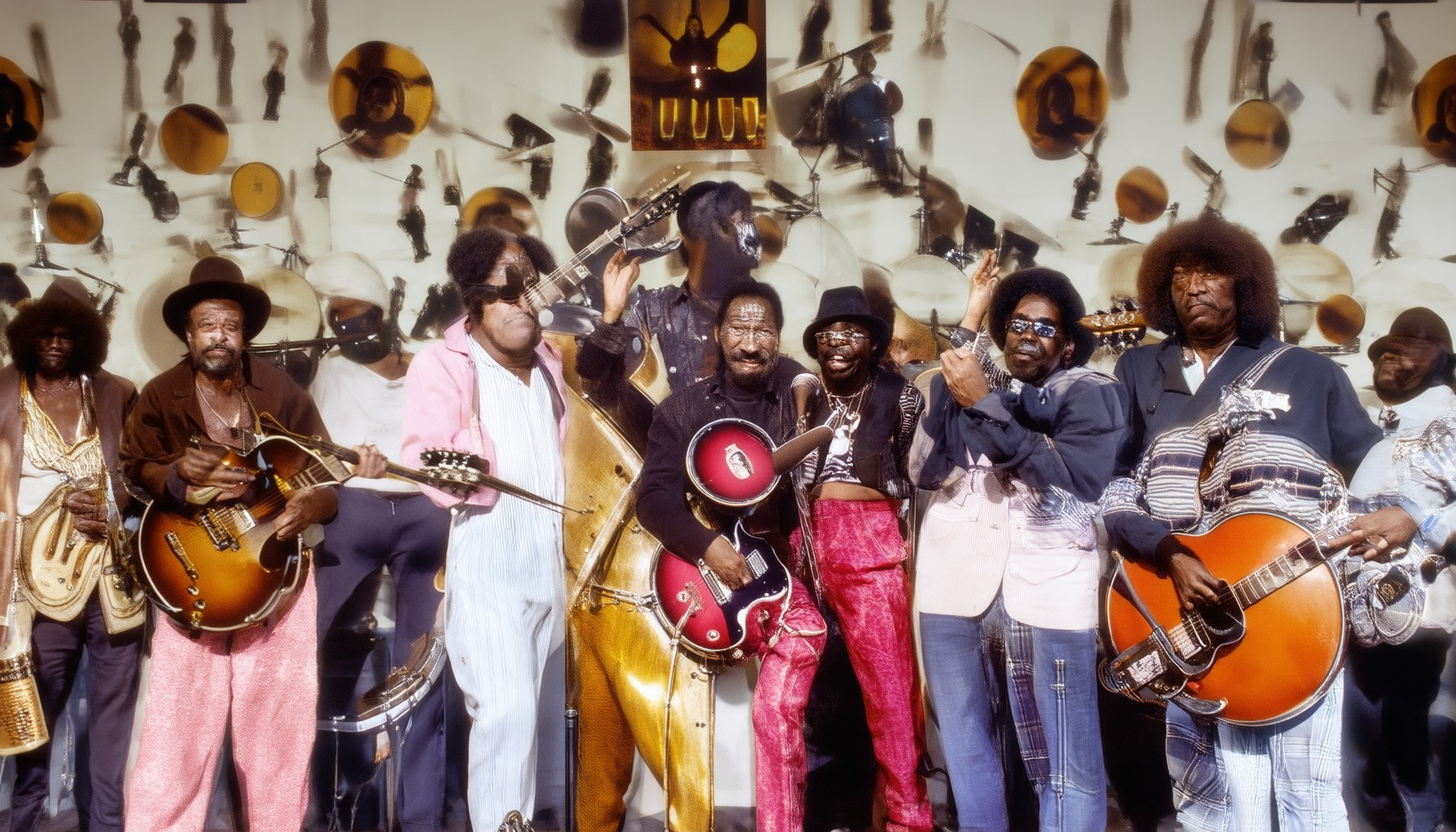
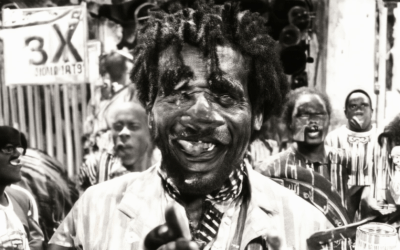


0 Comments